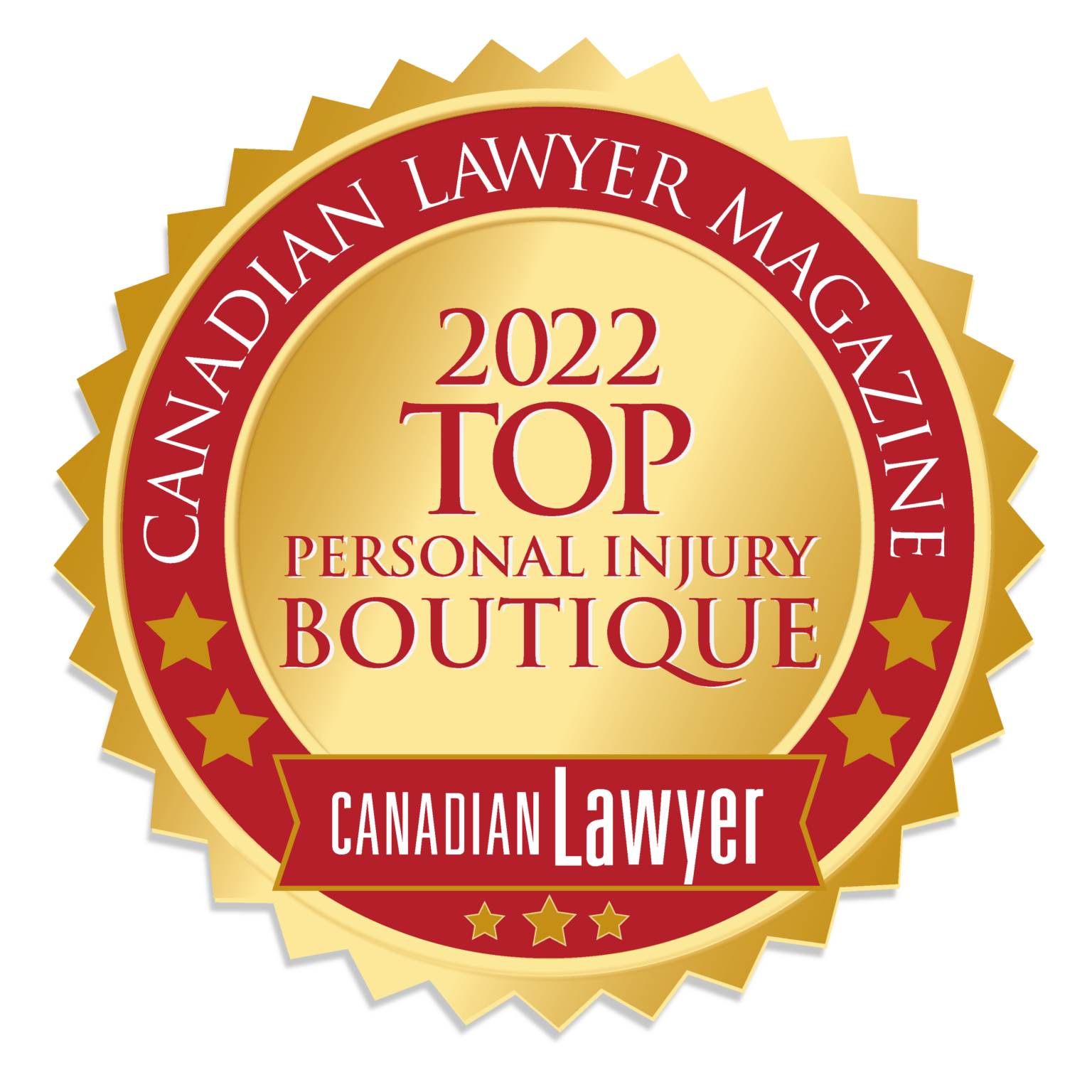You’ve been in an accident and suffered an injury. It’s affected your life in many new and unexpected ways: you’ve got medical appointments, you’re missing work, things aren’t getting done around the house, and relationships become strained. The phone rings, and it’s the insurance company for the person who injured you. In the middle of all this stress, they offer you some money, and give you some compelling reasons to accept the offer. How do you know if the offer is fair? You turn to Google and type, “How much is my injury claim worth?”
We get these questions all the time from frustrated injury victims across Alberta:
- What’s my claim worth?
- Is my claim worth pursuing?
- The insurance company offered me money for my claim, is it a fair offer?
It can be disappointing to learn that there is no quick and easy way to value an injury claim in Alberta. This fact, however, is actually a good thing for you and your claim. Here’s why.

How Is My Injury Compensation Determined?
In Alberta, the law treats you like an individual, and takes into account how your injuries have changed your life and affected you personally. This personalized approach is superior to certain other jurisdictions where injuries are assessed according to preset tables known in the insurance industry rather distastefully as “meat charts.” In Alberta, courts take into account how severe your injuries are, and how long they last when determining the amount of compensation you are entitled to; a person who is completely paralyzed for life will be entitled to more compensation for pain and sufferingthan someone with a broken hand. If the person with the broken hand is a highly-paid professional hockey player who can never play again, the value the courts assign to the injury might not necessarily change, but the overall value of the claim will increase because of the money that person won’t be able to earn because of the injury. Physical and psychological injuries – such as depression, anxiety, insomnia, and PTSD – are considered, and each additional injury typically increases the amount of compensation awarded.
When Can I Settle My Claim?
Before calculating the value of an injury claim it is important that you are either 100% healed from your injuries, or as healed as you can ever be expected to be. This is known as Maximum Medical Improvement or MMI. Your treatment providers will determine when you reach MMI and at that point the duration of your injuries will be known with enough certainty to determine the right amount of compensation for you. NOTE: in Alberta you have 2 years from the date of your accident to file a claim at the courthouse or your right to compensation will be forever lost. If you are getting close to the 2-year deadline, please stop reading this and contact us immediately. We may still be able to protect your claim.
Most injury claims in Alberta will end in a negotiated settlement. This means that you, as the injured person, agree to accept an amount of money from the person or persons who caused your injury in return for ending your claim forever. Most of the time, the compensation will be paid by the other person’s insurance company, but even if the other person doesn’t have insurance, there are ways to recover the compensation you are entitled to and an experienced personal injury lawyer can help. A small proportion of claims are resolved in a courthouse at trial, and in that case you may have to wait 5-10 years or more to receive your compensation. In most cases, injury claims are settled out of court in less than 3 years, but each claim is different and the length of time will depend on many factors including how complicated the accident was, the number of people involved, the seriousness of your injuries, and the length of time it takes you to reach Maximum Medical Improvement (MMI).
Why Am I Entitled to Compensation?
When you’re injured in Alberta because of the wrongdoing of someone else, the law says that you are entitled to compensation, but why? It’s because the law recognizes that something has been taken from you, and aims to put you back in the position you were before the injury happened. Of course, money is a poor substitute for your health and well-being, but in the case of pain and suffering, it’s the best the law can offer to people injured in accidents. The money that you receive in an injury claim is known as “damages” and you are entitled to many different categories of money or “damages” as part of your claim:
General Damages
General damages is the legal term for the money you get for things you cannot put a price on, such as your pain and suffering. To get you the compensation you deserve we need proof of your injuries and an understanding of how your life has changed because of the accident. Examples of evidence include:
- Treatment notes – the medical charts recorded at the time of your visits; and
- Medical-legal reports – specialized reports written by doctors, specialists, psychologists, or other medical practitioners, which explain your injuries and their effects on you in detail.
Your general damages may be subject to an upper limit called a cap if your injuries are minor and only involve soft-tissues, such as whiplash injuries. This article explains the cap in more detail and has the most up-to-date information on the current dollar value. Many injuries are not capped, so it’s a good idea to consult an experienced personal injury lawyer to find out for sure.
Loss of Housekeeping Capacity
After an injury, there’s a good chance that your ability to do things around the house will be limited. Vacuuming, shoveling snow, doing laundry – whatever you normally do around the house can be affected temporarily or permanently. You may need to hire help to keep up with household chores, or perhaps a friend or family member will take on more to assist you. Either way, you are entitled to some compensation for what is known as loss of housekeeping capacity.
Special Damages
Special damages is the legal term for things with a price tag; they are easier to calculate and include:
- The cost of medical treatment, except for any accident benefits you receive through your own insurance company or from any work benefits or personal benefits such as Blue Cross;
- Lost wages due to missed work, missed promotions, or missed opportunities;
- Medications, both prescription and over-the-counter;
- Medical supplies such as a brace, wheelchair, or adjustable bed;
- Personal property lost or damaged in the accident.
Future Cost of Care
After an accident, some people take medical treatment, heal completely and never require treatment for their injuries again. Others, however, require care far into the future and, occasionally, for the rest of their lives. Whether the care is massage, physiotherapy, chiropractic treatment, or something more serious like surgery or full-time in-home care, Alberta law provides for those costs to be covered under this category of special damages.
Future Loss of Income
It is an unfortunate reality that some injury victims are unable to return to work after an accident, temporarily or permanently. Sometimes an injury will require a change in work duties and responsibilities, other times a change in career, and there can be costs of retraining or going back to school. An injury can also prevent you from completing school or training, delay the start of a new job, or keep you from advancing as quickly. You may be forced to retire earlier than planned. If you’re self-employed, you may be unable to run your business or take on as much business as before your accident. In the case of our professional hockey player above, he may never find a job that pays near as much as playing in the NHL, so his future loss of income claim is likely to be very large. Whatever the case, there is an opportunity to make a claim to get compensation for how your ability to earn money is affected into the future.
Does It Matter Who Is at Fault?
The short answer is that it definitely matters who is at fault for the accident when it comes to whether or not you are entitled to compensation for your claim. In Alberta, however, fault is not treated as black or white, and lawyers tend to speak more about liability instead of fault.
li·a·bil·i·ty
/ˌlīəˈbilədē/
noun
the state of being responsible for something, especially by law.
synonyms: accountability, responsibility, legal responsibility
Liability, or legal responsibility, can rest with one person in an accident. For example, if you’re at a red light and someone runs into you from behind, that person is likely to be found 100% liable for the accident by the courts. If you make a claim for compensation against that person, he or she will have to pay 100% of the money awarded to you by the courts, or negotiated for you in a settlement by your personal injury lawyer.
Sometimes you can be injured by someone else in an accident, but because of something you did or did not do, the court may find you partially liable for your injuries. For example, imagine you are a passenger in a car and the driver loses control causing the vehicle to roll over. Because you were not wearing your seatbelt, your injuries are more severe. The court may find you partially liable for your injuries. This is known in Alberta law as contributory negligence. If you are concerned about whether or not you are liable for any part of your accident, the best thing to do is to contact an experienced personal injury lawyer who can properly assess your claim.
If you are partially liable, the amount of money you are entitled to for your claim will be reduced by the amount of liability the court assigns to you. For example, imagine someone hit by a car while crossing the street outside of a crosswalk. The court finds him 50% liable for the accident, and his claim is worth $100,000. He would be entitled to $50,000, or half of the claim value.
Calculating the Value of My Claim
You’re either completely healed from your injuries or you’ve improved as much as you ever will; it’s time to calculate the value of your claim. Making an injury claim in Alberta requires various evidence, and here are some examples:
- If the person who injured you denies liability, we may need statements from independent witnesses or a report from an accident reconstruction specialist.
- We will require evidence of your injuries such as the notes your medical providers take each time you visit, reports from doctors or specialists, or imaging such as x-ray or MRI.
- If you have lost income because of the accident, we may need income tax returns to show the decrease, or information from your employer about your salary and time missed from work. If you’re self-employed, we may need a detailed report from an expert such as an accountant or economist.
- We may require the opinions and reports of numerous other experts such as medical, financial, or employment experts.
Sometimes these calculations are simple, but many times they are difficult and complex and must take many factors into account that are best left to experts. For example, if you are unable to work in your old job and need to find a new one, the calculations for the costs of retraining and lost opportunity can be very confusing. If you are unable to ever return to work, it can get even more complicated. An experienced and competent personal injury lawyer will have access to all of the necessary experts required to capture every possible avenue of compensation for you and your family.
Of course, all of this evidence comes at a price. Treatment notes from a medical provider can run from $50 to over $500 per medical provider. Hiring an expert to give evidence for a claim can run from $500 to over $20,000, just for a written report. If experts are needed to testify on your behalf at a trial, these costs can increase dramatically. Even if a claim settles before trial, the expenses can easily balloon to tens of thousands of dollars. The vast majority of injury claims in Alberta are settled out of court, but the proper evidence is still required to arrive at a fair settlement value. Injury lawyers often cover these costs – known as disbursements – for clients upfront, and they are only repaid once the claim is settled, or resolved in court. Virtually all of the time, a personal injury lawyer will ask for these disbursements to be paid for by the insurance company of the person who injured you. In other words, they will be paid over and above the compensation you are entitled to, and will not come out of your claim. NOTE: many injury lawyers charge very high interest fees of 15% or more on disbursements, and that interest charge comes out of your compensation in addition to the fees you owe the lawyer. If you intend to hire an injury lawyer, make sure you watch for these and other hidden charges.
Help is Available
We’re here to help you calculate the value of your injury claim and ensure that you get every dollar you’re entitled to. We’ve been in business for over 43 years, handling every type of injury claim from the simplest to the most complex. Personal injury law is all we do. We have access to top experts in every area so you’re always covered. We never charge hidden fees or increase our fees in the middle of your claim. Best of all, you don’t pay until we win, and that includes the costs of gathering evidence to prove your claim. Consultations are always free, and we’re here for you 24 hours a day, 7 days a week. Call us today and let us protect your rights.







